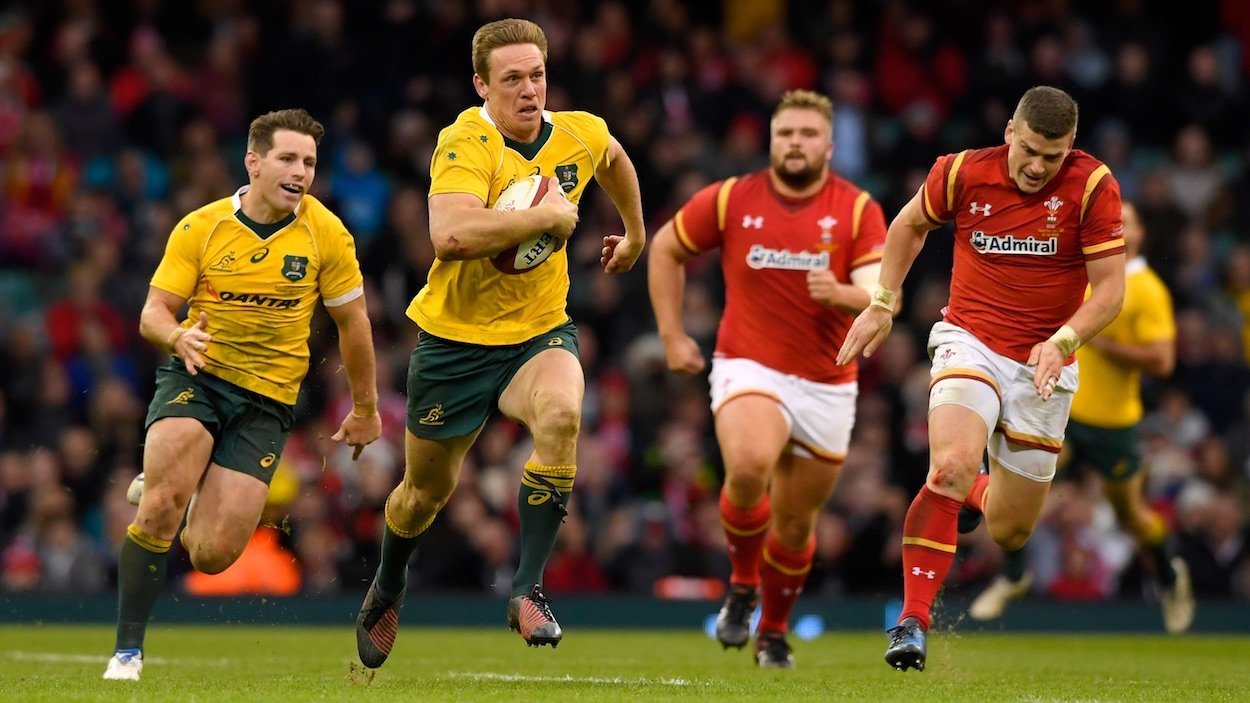How did Wales manage to lose so spectacularly against the Wallabies in Cardiff last weekend? Let Lee Calvert count the ways.
Rugby is essentially a simple game: you win the ball then do something sensible and creative with it; you lose the ball and tackle people to win it back. On Saturday in Cardiff the home side couldn’t do any of these things.
Wales have been the best defensive team in Europe for years now, while their attack has been… not exactly sharp, but decent enough to bag them three Grand Slams in ten years. Not bad. But this weekend they bad. Very, very bad.
Australia rumbled into Cardiff on the back of a Rugby Championship campaign that looked about as inspired as a punk at Coldplay concert, and yet they dismantled Wales 32-8 in their own back yard. How did this happen?
1. The Australian attack
Wales were made to look poor by a Wallabies back line coached to perfection by Stephen Larkham. Each attacking phase had pattern, speed, structure and angles that consistently questioned Wales’ tackle line. But it is easy to play like this when the ball you receive is gift-wrapped, which brings us to…
2. Wales’ defensive breakdown
Any team would struggle to lose two players the calibre of Sam Warburton and Taulupe Faletau as Wales did in the run up to November, but that is still scant excuse for a breakdown performance that was akin to jelly being thrown at a train. Australia were allowed to dictate their own ball speed to such an extent that Bernard Foley was made to look like a Hall of Fame player. BERNARD BLOODY FOLEY!
[rugbypass-ad-banner id=”1475535264″]
3. Wales’ defence
The sheer awfulness of the Wales effort in this regard is perhaps most aptly demonstrated by Jamie Roberts. For five years Roberts has been one of the best defensive centres in world rugby; on Saturday whatever was actually happening in front of him he simply ran at Tevita Kurindrani, which brought increasingly awful results for his team.
4. Wales’ attacking breakdown
When Wales finally got some ball after about 22 minutes of the first half and then very sporadically thereafter, their recycling was slower than a disability scooter Grand Prix. This was despite the fact that the Wallabies were fanning their defence and not exactly chucking people into the ruck. Then scrum half Rhys Webb would grab the ball, bringing us to…
5. The lateral nightmare
You know that dream where you’re trying to escape from something but you can’t actually run? After Saturday Wales fans have a version of this that wakes them up in the night, but instead of trying to run they are watching their players trying to go forward but going sideways. Forever.
Every time Webb used the ball it went sideways – either to Dan Biggar or a static forward who then chose between waddling into the welcoming arms of the Australia line or shipping it laterally again to another static player who would then waddle into… you get how it goes. There was no pattern, no second wave, no angles. Nothing. Occasionally Webb or Biggar would change it up a bit and kick the ball and it would go straight to Israel Folau. Brilliant.
6. The leadership
In many ways this performance should not have come as a surprise. Wales have been stagnating for some time and their improvement in New Zealand in June now looks like an anomaly. Warren Gatland is absent, Rob Howley is in charge on an interim basis, Shaun Edwards stills runs defence and Robin MacBryde remains as forwards coach. They each appear unable to make the required changes to move Wales forward and they have stood still while the rest of rugby have moved on.
Most insulting to those who follow Wales were the usual excuses about slow starts and learning lessons coming from Howley at the post-match conference. Wales fans are not stupid, they can see the serious problems that no one seems to have the honesty or courage to admit to, let alone the tools to fix. As the legendary prop Graham Price said after the match, “our management should have a PhD in lessons learned by now.”
















